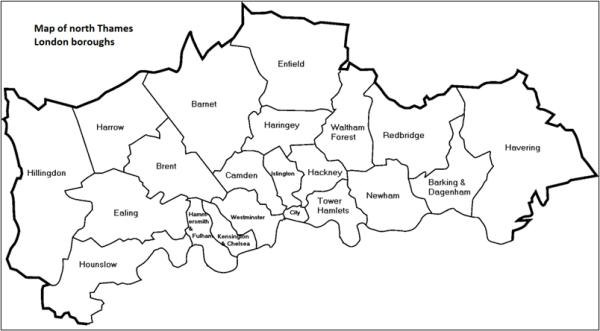University of East London
Course code:
600
Course length:
3 years (full-time)
Phone:
020 8223 4174
Administration email:
[email protected]
Overview
Who can apply:
We cannot consider applicants who have yet to attain GBC.
We cannot consider applicants who have undertaken NHS-funded psychological professions training (started after 1 April 2022), until 2 years after the training was completed and the qualification awarded.
Please see our Entry Requirements page for more information.
Qualifications:
You must have an honours degree in Psychology of 2:1 class or above OR
For a conversion diploma/MSc, you must have a 2:1 or above in your first degree and equivalent results or better in your conversion.
Please see our Entry Requirements page for more information.
Experience:
You must have at least 12 months WTE paid employment in a relevant post at the time of the application.
Please see our Entry Requirements page for more information.
Residence:
You must:
be a UK resident, and
be entitled to work full-time in the UK for the 3 years of the programme, and
be eligible for Home Fee status with the university
Please see our Entry Requirements page for more information.
Application:
Applicants will be invited to sit situational judgement and research tests.
Please see our Selection Procedure page for more information.
Disability:
Applicants with disabilities are offered reasonable adjustments and support at key stages of selection upon request, including accessing the Assessment Day tests and attending the Panels Day.
Please see our Selection Procedure page for more information.
Document requirements:
All applicants should check the UEL entry for the evidence you need to provide of your English language ability.
Please provide a document confirming your GBC status, plus:
- Undergraduate degree TRANSCRIPT
- Conversion course TRANSCRIPT (if completed)
- Any other Masters degree TRANSCRIPT (if completed)
- Any other Postgraduate degree TRANSCRIPT (if completed)
- Any other Postgraduate degree CERTIFICATE (if completed)
- If the transcript for your GBC course (undergrad or conversion) does not give a final overall percentage grade, please provide a letter from the course giving this grade
- English test - ALL APPLICANTS check requirements of the course
Open Day
Join us for an Online Applications Event in October. Please email [email protected] to register your interest and we will get in touch with the dates and times in due course.
Professional accreditation
Our training is accredited by the British Psychological Society (BPS) and meets the requirements of the UK Health & Care Professions Council (HCPC). Trainees who successfully complete the programme are eligible to apply for registration with the HCPC as a practitioner psychologist (clinical), and for chartered membership of the BPS.
The programme is currently developing a pathway within the curriculum that will enable trainees to be eligible for foundation level of accreditation with the Association of Family Therapists (AFT).
Approach and theories
The programme's key orienting principles are:
(a) that psychological problems are best understood in a social and cultural context, and
(b) that trainees and those who teach and supervise them have a responsibility to be aware of and to be able to reflect upon, the social, professional, and personal influences on their professional activities.
The programme is characterised by this distinctive approach to the subject. As well as providing teaching on the major approaches to clinical psychology theory and practice, the philosophical bases of scientific activity are examined, especially the problems of applying philosophies and methods from the natural sciences to human behaviour and society.
The programme strongly encourages the formulation of psychological problems in their social context. Approaches to teaching and practice are informed by systemic principles, relationships, and connections to wider networks and contexts. There is a particular emphasis on conceptual issues such as the reliability and validity of diagnostic categories, and an awareness of debates about the evidence bases for psychological interventions.
Placement locations
Placements are allocated across the north Thames area of London (see map below). Applications are only accepted from candidates who are able and willing to travel to the UEL base/HQ, and across the training region, in order to arrive for work in time to undertake a full day of academic study, research and/or clinical duties.

Last updated:
1st September 2025

